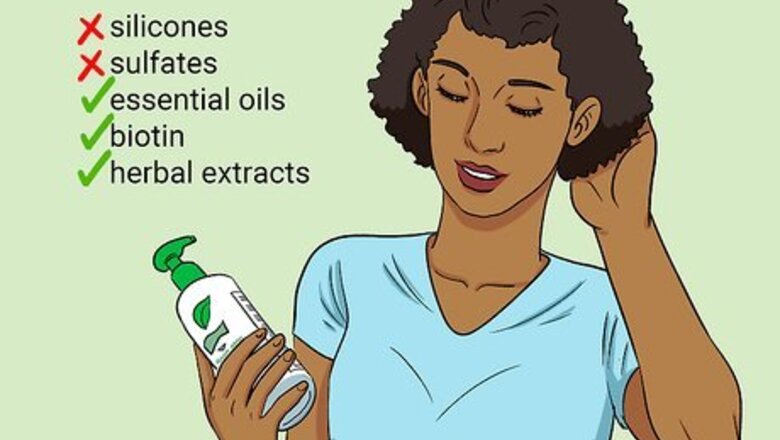
views
Here are 12 effective ways to fight frizz and get smoother, softer hair.
Use sulfate- and silicone-free products.
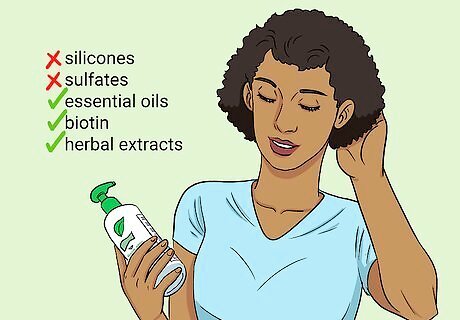
Products with silicones and sulfates can dry your hair out. Instead, look for products that don’t have these ingredients—they’ll probably say “silicone and sulfate-free” on the bottle somewhere. Look for ingredients like essential oils, biotin, and herbal extracts instead. Watch out for products with alcohol in them, too! Alcohol is very drying which contributes to frizz. Don't worry if you put your sulfate-free shampoo in your hair and it doesn't foam or bubble up that much. Sulfates create the bubbling foam in your shampoo, so your new products might not be as foamy.
Wash your hair with warm, not hot, water.
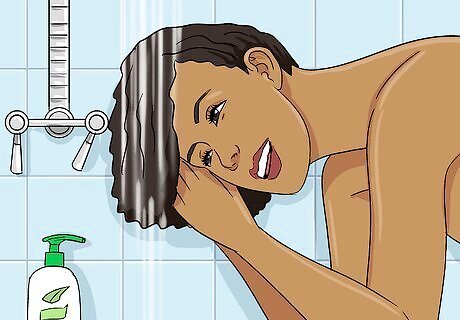
Hot water strips your hair of natural oils. This can lead to dry, frizzy hair when you get out of the shower. When it’s time to wash your hair, turn the temperature down just slightly until the water is warm. If your shower is steaming, it’s probably a little too hot.
Use conditioner after you wash your hair.
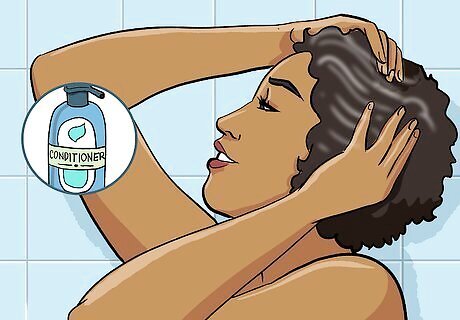
Give your hair some much-needed moisture to prevent frizz. Whenever you wash your hair, apply a quarter-sized amount of conditioner from the mids to the ends of your hair. Try to avoid putting conditioner on your roots, since that can make your hair look greasy. Let it sit for 2 to 3 minutes before rinsing it out. Rubbing and scrubbing your hair with shampoo can cause frizziness and dryness. Conditioner helps to tame some of that frizz after you wash your hair.
Try a deep conditioner once a week.
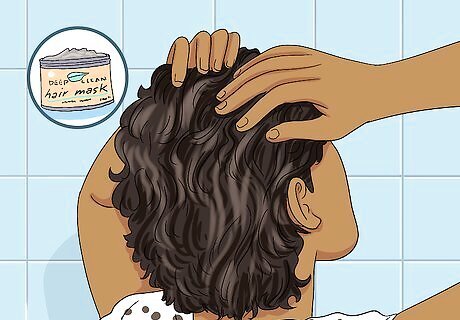
Really add in extra moisture to prevent dryness and frizziness. About once a week, use a deep conditioner treatment or a hair mask and let it sit for 10 to 15 minutes. Rinse it out to make your hair healthy and shiny to cut down on frizz. This is especially important if you bleach or color your hair. Bleached and colored hair might be slightly damaged, which can lead to frizz.
Squeeze moisture out with a towel.
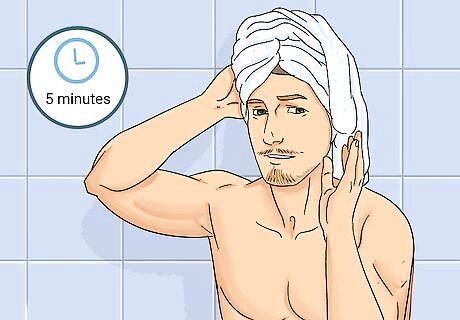
Scrubbing or rubbing your hair dry creates a lot of friction and frizz. It can also damage or even break the ends of your hair. When you get out of the shower, grab your towel and gently blot your hair until it’s not dripping wet. Wrap your hair up in the towel to get the rest of the water out, and leave it up for about 5 minutes. If you have the option, try using a microfiber towel instead of a terry cloth one. They’re more gentle on your hair so they can help combat frizz.
Comb through your hair when it’s mostly dry.
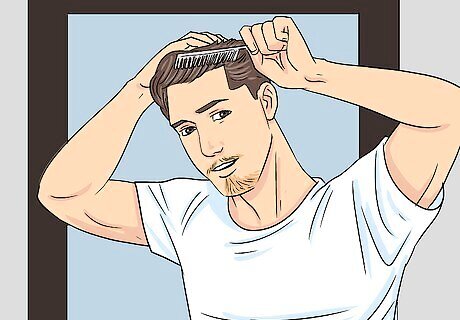
Brushing wet hair can lead to frizzy damage and breakage. Instead, wait until your hair is damp or mostly dry to run a wide-toothed comb through it. A comb will be much more gentle than a brush, so it’s good at preventing frizz. Start combing from the bottom and slowly work up toward your roots. It will keep you from tugging and pulling on tangles so you don’t damage any of your ends.
Limit your use of heat styling tools.
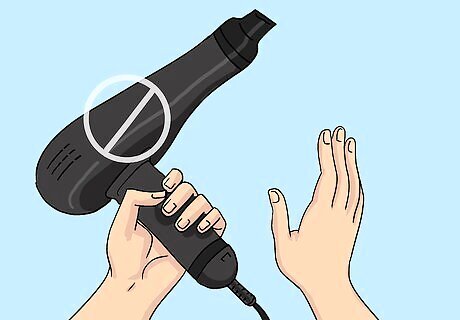
They can really dry out your hair and create frizz. If you can, try letting your hair dry instead of using a blow dryer. Don’t use straighteners or curlers unless it’s a special occasion, and always use heat protectant when you do use heat styling tools. Running a straightener through your hair can actually help tamp down frizz and smooth out any flyaways. However, using a straightener every day can lead to damage and frizz in the long run.
Touch your hair as little as possible.

This goes for when it’s wet and when it’s dry. No matter your hair type, touching it a bunch will only cause frizziness and puffiness, since your fingers can absorb the natural oils from your hair. Unless you’re styling it, keep your hands off! This is especially important if you have curly or wavy hair. Disturbing your curl pattern will make your curls look loose and frizzy.
Apply argan oil to the ends of your hair.
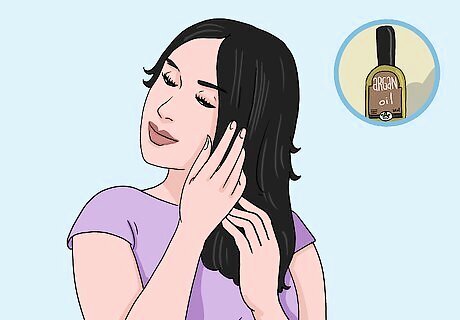
Smooth down frizz when your hair is dry with an oil. Put a few drops of argan oil on the palms of your hands and gently run it into the ends of your hair. Smooth down your ends to combat the frizz and make your hair look smooth and shiny. Try to keep the argan oil away from your scalp. Putting oil on your roots can make your hair look greasy, especially if you haven’t washed it in a few days.
Tamp down frizz with hair wax.
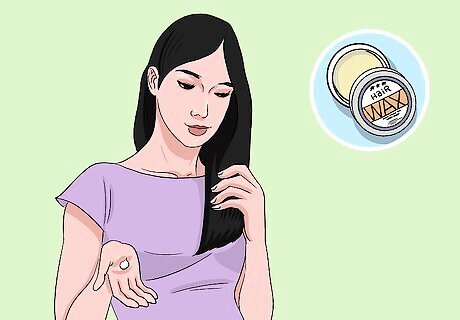
Flyaways on the crown of your head can be annoying to deal with. Grab a quarter-sized dollop of hair wax and use 2 fingers to smooth down individual flyaways. You can keep using hair wax throughout the day to tame your hairstyle and keep frizz in check. Hair wax isn’t oily or greasy, so it’s safe to put near your roots.
Sleep on a silk pillowcase.

Cotton pillowcases create a lot of friction, which can be drying. Switch to a silk or satin pillowcase to hydrate your hair while you sleep to prevent frizz. Silk and satin pillowcases aren’t very expensive, and you can usually find a decent one for around $20 at most home goods stores. This is especially true if you have curly or wavy hair. A silk or satin pillowcase can help keep your curl pattern intact while you sleep, so you don’t have to do as much styling the next morning.
Trim your split ends regularly.
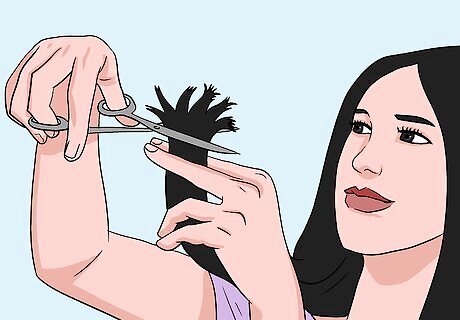
Split ends tend to make your hair look more frizzy and damaged. The ends of your hair tend to split before the rest of your hair, which is why it’s important to get them trimmed off. Try to get your hair trimmed every 6 to 8 weeks to maintain your hair health and cut down on frizz. You don’t have to take off a ton of hair—even cutting off 1 in (2.5 cm) will help tamp down your frizz.

















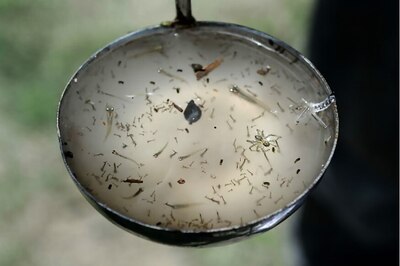
Comments
0 comment